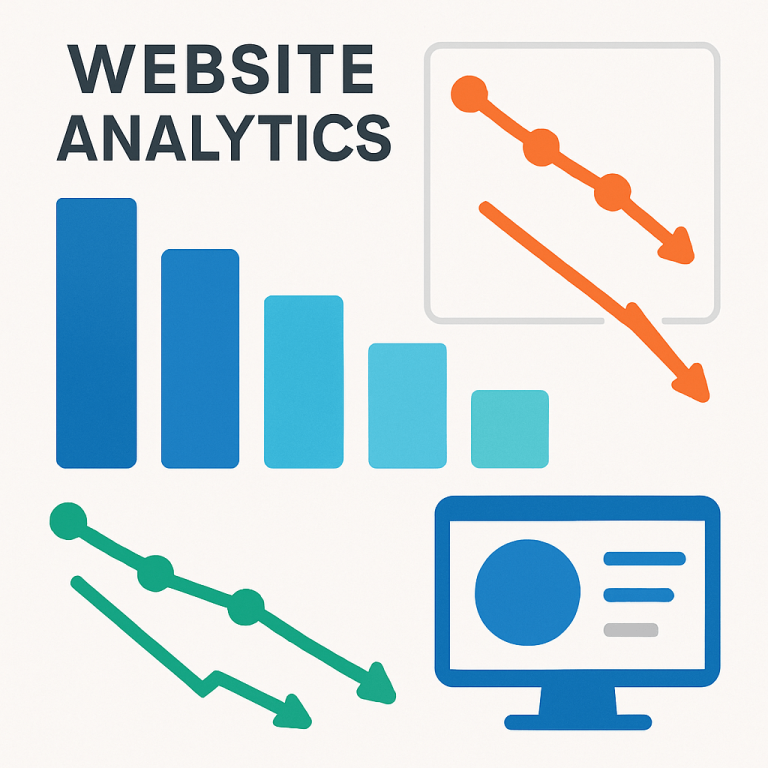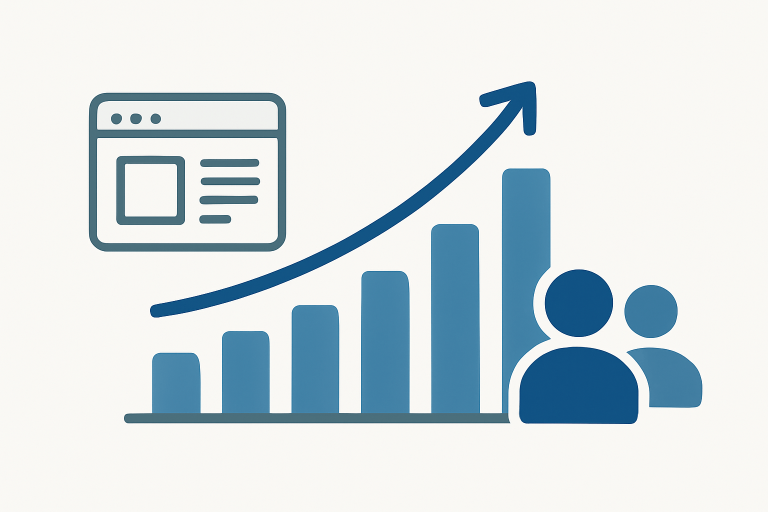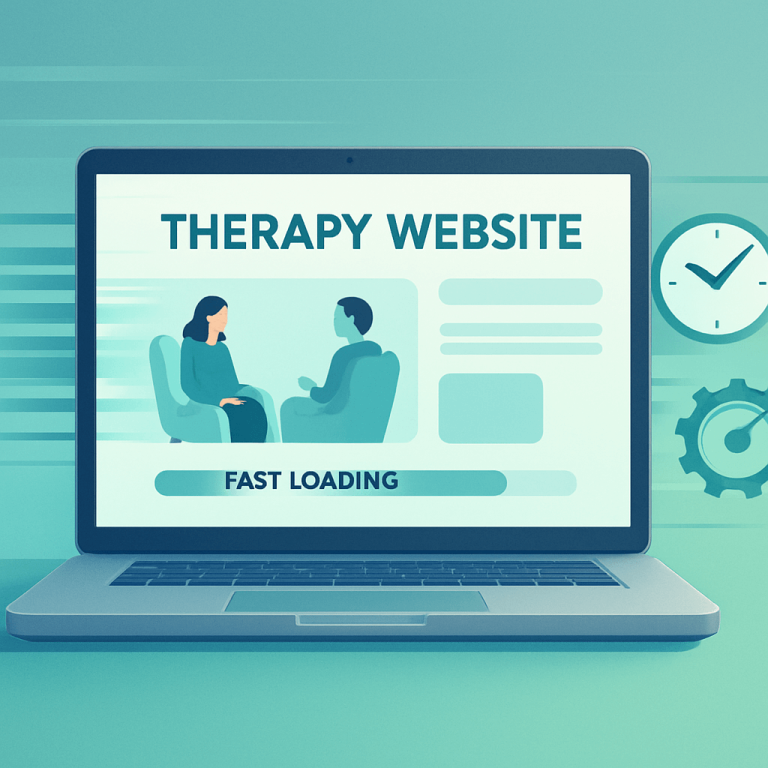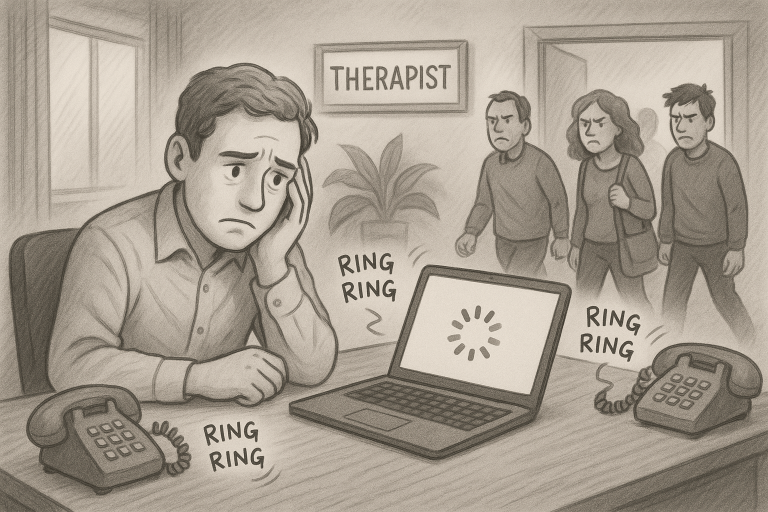5 Myths Private Practice Therapists Believe About Website Speed
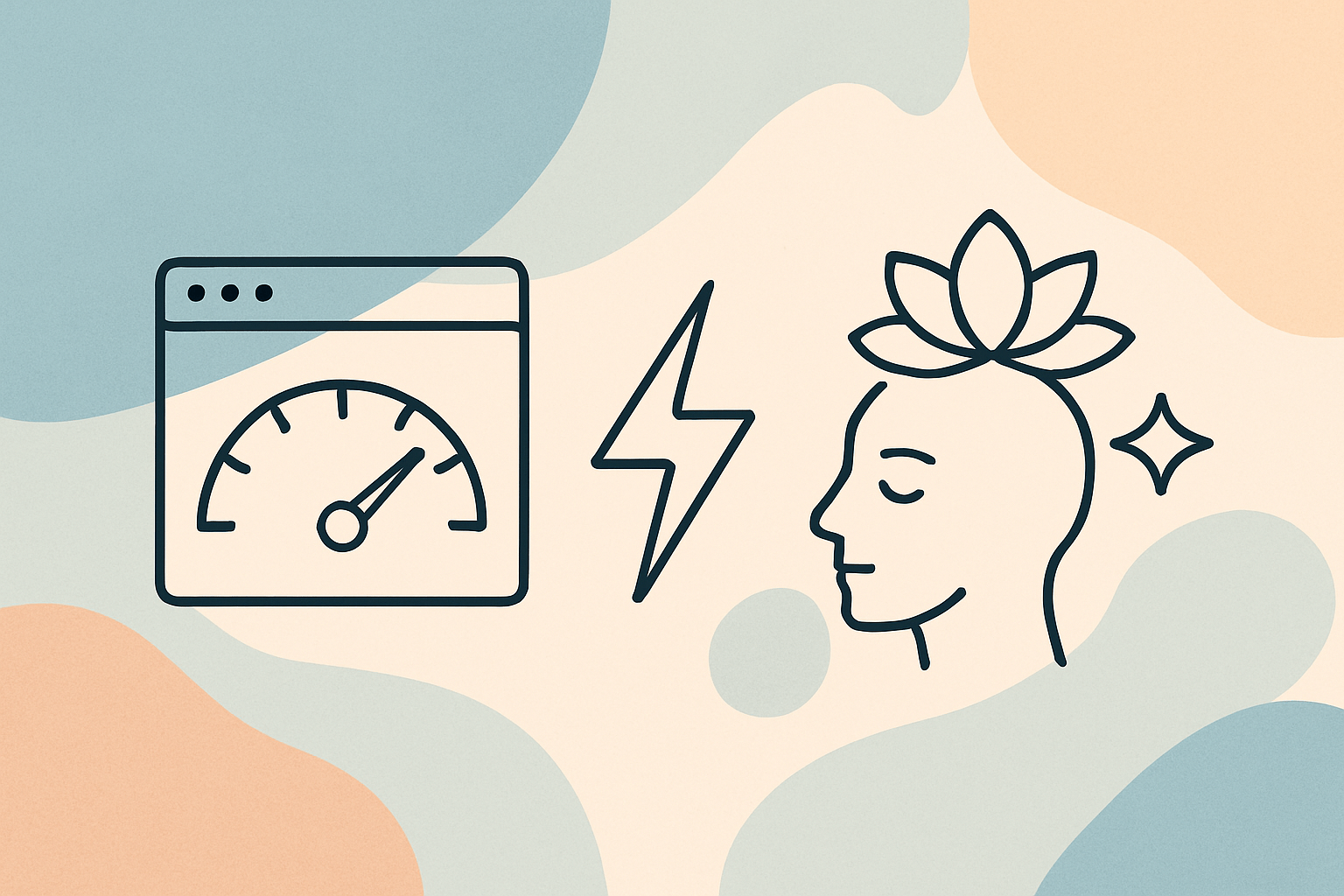
Having a private practice website is a great way to connect with your potential clients. It acts as a platform where you can showcase your work, provide expert tips, answer user questions, and provide a way to the user to contact you. But for all these things to happen, website loading speed also matters.
Without a good loading speed of private practice website, users leave before engaging with the website’s content. Many private practice therapists ignore this crucial aspect. They believe that website speed does not effect client flow in any way. That’s not true.
Maybe you’re more focused on your bio, services, and making sure your contact form works. But the truth is website speed directly affects how many potential clients stay on your site and reach out to you.
Unfortunately, there are a few myths floating around that keep therapists from paying attention to it. In this post, I have de-bunked 5 myths private practice therapists believe about website speed. So let’s clear them up.
Myth 1: “My Website Loads Fine on My Computer, So It’s Fast Enough”
You might have your private practice website loading fast at your computer but is this true for your users too? This is the biggest misconception. Even if your website is loading fast on your system it doesn’t mean that your website will be loading fast on other user’s computers, devices, and systems. Your computer already has the cached version of your website saved in the browsers but not in the users browsers.
To check is your really fast loading on other users browser, you can use private practice website speed testing tools like GTmetrix to know the real website loading speed on other users devices.
If it is fast then well and good, and if not then leave the misconception and work on optimizing website speed.
Myth 2: “Speed Only Matters for Big Businesses, Not Therapists”
This is the second biggest misconception that many private practice therapists believe. Many therapists think that website speed optimization does not matter in their profession. This is something which e-commerce stores or tech companies worry about. But that’s really not true. Research shows most people leave a site if it takes longer than 3 seconds to load.
Clients looking for a therapist are just as impatient as online shoppers. I would say they are more impatient, vulnerable, and researching for quick help. If your website will take time to load, the potential user will leave the website frustrated. This is not beneficial not only for the user but your business too. More users leaving the website means less engagement with your content and ultimately less clients.
A bad web hosting is one of the reasons for a slow therapist website. Check its server location to yours, what type of servers they use, do they provide server side caching, resource limit. I have talked about these things in detail here: 7 things to look for in a hosting for a private practice therapy website.
Myth 3: “Images Don’t Really Slow My Website Down”
Images are a great way to showcase yourself. Uploading images build trust with the user. For a private practice therapist website I always recommend to use real, genuine images on the website. But not the rough version. Only optimized ones only. Therapists believe that like social media, they can upload images to website and they will load fast. That is not the right thinking.
Large, unoptimized images are often the #1 reason a therapist’s website loads slowly. Large, heavy file size images takes time to load, increasing your private practice website loading speed. Never upload images to therapist website without optimizing them.
By using image compressing tools like tinypng to compress the images and resizing images you can cut your load time dramatically without losing quality.
Also read: Quick ways to speed up a private practice website
Myth 4: “As Long as My Website Works on Desktop, I’m Good”
Many therapists think that their website is loading fine on desktop, but, what about mobile devices? In this age of internet, where 90% people have access to smartphone, neglecting mobile screens is a bad idea. Most of the users first start their search from their mobile devices only. They do local therapist research like therapist near me, therapist + city. But if your website will load slow, what will happen? You will not only lose the client but also your rankings if you are ranking on search engines.
And if the user is not on Wi-Fi but on mobile data it can be a headache for them when the website will load slow.
So check your website speed on mobile devices. You can use specialized website speed testing tools for mobile devices like Uptrends. This tool will tell you about your website loading speed on various mobile screens and data speeds.
Myth 5: “Clients Care More About My Content Than My Site Speed”
There is a famous saying that content is the king. That’s true. But what if the users can’t read your content because of a slow website? Your content will become like an item which is sitting in a shelf accumulating dust.
So just having good content is not enough. You have to make sure that the content is under the reach of your users and this happens when your private counselling website loads within 3 seconds. When your website is both informative and fast, you give potential clients the best first impression.
Wrapping Up
Your website is often the first step in a client’s healing journey with you. By believing in myths you are decreasing your case load. Don’t let myths about speed cost you opportunities. A slow therapist website cost you clients. So never take website loading speed lightly. By paying attention to site performance, you help more people stay, connect, and reach out for the support they’re looking for.
